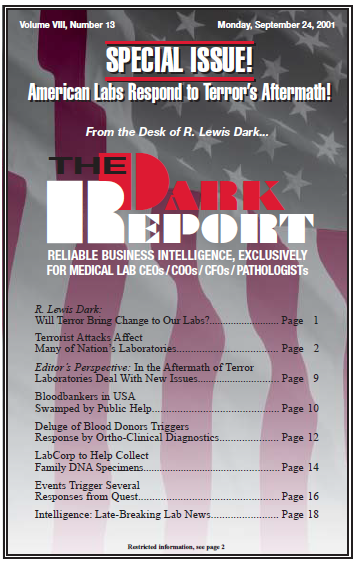CEO SUMMARY: Terrorist attacks on September 11 impacted Quest Diagnostics Incorporated in a number of unexpected ways. Security measures in New York City and Washington, DC impeded normal courier activities. The immediate shutdown of all air traffic nationwide meant that air-freighted specimen shipments needed to be located, recovered, stabilized and moved forward to an appropriate […]
To access this post, you must purchase The Dark Report.


